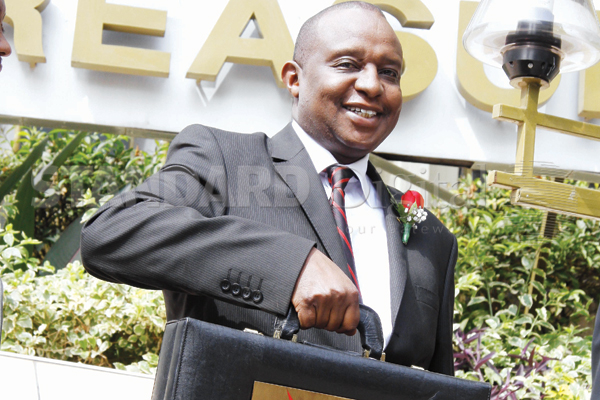×
The Standard e-Paper
Kenya’s Boldest Voice

NAIROBI, KENYA: At Sh3.07 trillion, Kenya's budget for the next financial year that starts on July 1 is close to 15 times bigger than it was in 2002.
Government's expenditure has increased substantially since former President Mwai Kibaki took power in December 2002. It more than doubled in his first term in office to hit Sh700 billion in 2007/2008 financial year.